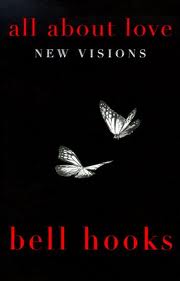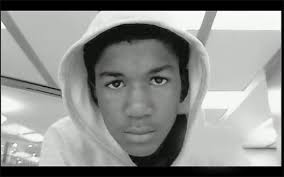Love letter to white people
By Joe Osmundson
White people, I love you. I really do. Not because I am a white person myself. This is not a story of self-love, although those can be important. This proclamation is not an attempt to subvert power structures that disavow love of white bodies. No, love of white bodies and selves, that is the norm, so hidden in plain sight that it is rarely given a racial identity at all.
We are so afraid of talking about race. We almost always believe racism is a thing that other people do. Talking about race and our own racism is ugly, and it implicates us in terrible things. But love without honesty is infatuation. If we want to love ourselves and each other we have to admit to the worst amongst us and claim the worst within us. I want to do this work.
White America, America full stop, I am trying to love you in a different way, an honest way, a way that provokes a dialog, a way that requires progressive change. I love you, and we need to do better. James Baldwin said, “Love is a battle, love is a war; love is a growing up.” White people, it’s time we grow up.
Who am I and what am I doing here?
 I read The Autobiography of Malcolm X embarrassingly late in life, at 28. I am white and from a working class community in the rural Pacific Northwest. I have lived in NYC for seven years now. I was finishing the final pages at the McCarren Park Pool in Williamsburg. I was at the pool that day with a few friends who are all queer men of color. I consider myself an ally in the fight for racial justice. I label myself a feminist. I do not see the struggles for queer and women’s rights, economic justice, racial justice as separate. The power, I always thought, was at the intersection; no one struggle would succeed without the others. I was reading X.
I read The Autobiography of Malcolm X embarrassingly late in life, at 28. I am white and from a working class community in the rural Pacific Northwest. I have lived in NYC for seven years now. I was finishing the final pages at the McCarren Park Pool in Williamsburg. I was at the pool that day with a few friends who are all queer men of color. I consider myself an ally in the fight for racial justice. I label myself a feminist. I do not see the struggles for queer and women’s rights, economic justice, racial justice as separate. The power, I always thought, was at the intersection; no one struggle would succeed without the others. I was reading X.
X, it turns out, was also reading me.
“I sure don’t want to hurt anybody’s feelings,” he wrote, “but in fact I’ll even go so far as to say that I never really trust the kind of white people who are always so anxious to hang around Negroes, or to hang around Negro communities.”
I looked around me. In the heart of hipster Williamsburg, the pool was filled with people of color. I turned back to Malcolm.
“I tell sincere white people, ‘Work in conjunction with us – each of us working among our own kind.’ Let sincere white individuals find all other white people they can who feel as they do – and let them form their own all-white groups, to work trying to convert other white people who are thinking and acting so racist. Let sincere white people go and teach non-violence to white people!” (emphasis added)
While I believe that white people do have a role to play in the fight for racial justice, simply unpacking our invisible backpacks of privilege is necessary but not sufficient. White guilt isn’t changing shit. Doing the work to actually see race is the first step. The second step, the harder step, is to stop telling ourselves the lies that perpetuate bias and to stop participating in the structures that codify racism, and to implore other people to do the same.
Moving beyond Malcolm
But what does any of this have to do with love?
Another voice was ringing in my ear that August day at the pool. James Baldwin insisted that love, real love, was the only way forward in America. “We,” he wrote, “with love, shall force our [white] brothers to see themselves as they are, to cease fleeing from reality and begin to change it.”
To Baldwin, love was white people’s only salvation. Baldwin’s work was published more than 50 years ago, but the battle feels the same.
 White love, American love, still negates truth, requires myth, is predicated on lies. Years after Baldwin, bell hooks reminded us that love and domination are incompatible. Capital L love is built on honesty and equity, requires accountability, and pain and movement and growth. Baldwin wrote, “Love takes off the masks that we fear we cannot live without and know we cannot live within. I use the word ‘love’ here not merely in the personal sense but as a state of being, or a state of grace – not in the infantile American sense of being made happy but in the tough and universal sense of quest and daring and growth.”
White love, American love, still negates truth, requires myth, is predicated on lies. Years after Baldwin, bell hooks reminded us that love and domination are incompatible. Capital L love is built on honesty and equity, requires accountability, and pain and movement and growth. Baldwin wrote, “Love takes off the masks that we fear we cannot live without and know we cannot live within. I use the word ‘love’ here not merely in the personal sense but as a state of being, or a state of grace – not in the infantile American sense of being made happy but in the tough and universal sense of quest and daring and growth.”
Love requires accountability
The face of racism has changed in the last generation in our country. Overt racism still exists, of course. But in today’s America you get fired for using the N-word. We have a black president. It is impossible to say that things haven’t changed. And yet, I promise you white people, the world is not post-racial.
I love you and I want to tell you the truth.
I will start with a little bit of my truth. In college, I was haunted by the folks I left behind. I knew that poor white were not being given the opportunities I had. I knew that there was no such thing as affirmative action for these kids (who were a lot like me, just like me, could have been me) and I argued that they needed it. Socioeconomic affirmative action. I argued this point hard until I was called out. Didn’t I see, I was asked, that when I walked into a room no one saw my socioeconomic status? No one assumed that I got into my elite college because I was from a disadvantaged background. Everyone assumed I was upper middle class and from a prep school and just like them. And didn’t I see what was happening to the students of color on campus?
Race still matters.
Poverty is still racialized. The absence of laws ensuring that black folks don’t vote in the south doesn’t mean that access to education , health care, even to the voting booth, is equal. Study after study, if you’re into that sort of thing, has shown that access to these things are not equal across races. Within hours of the Supreme Court striking down aspects of the heavily bi-partisan Voting Rights Act several states moved to change their voting laws in ways that may limit the impact of black voters.
Racism is both personal and systemic. On the personal side, bias infects us, all of us, on a daily basis. Since the arrival of black people in America, we have been constructing narratives that pathologize black men as strong but volatile and dangerous, black women as lazy and overly sexualized. These narratives are still lived today. Again, for those that are into this sort of thing, insidious, unconscious bias has been shown against black people in study after study.
There are people out there who don’t need these studies because their daily existence speaks to these truths.
White people, it’s time to learn to listen. Not just to studies, but to people who aren’t us. This is what it means to love. Let us learn to trust truths that we cannot live in. Let us question our own implication in these narratives. Do we get uncomfortable when we’re around large groups of black men? Do we assume that a black mother wearing hoop earrings is on welfare? Does that make us devalue her? Would we assume that a black job candidate might be less qualified than a white job candidate based on their race? We might. We could. We often do. It is ugly to admit, but it is also the truth. Studies tell us so. So do stories.
Love requires accountability. We must admit that we see race and that we see it in ways that can lead to discrimination and violence. We must hold ourselves accountable not only for sins of the past but also for the structures we uphold in the present.
Love requires honesty
 The summer of 2013 has seen a reemergence of race in our national dialog thanks, in large part, to a few high-profile cases. Beyond the tragedy of Trayvon is our national response to it. With a dead black teenager on the ground, many responses have decried apparent anti-white racism as though discussing race at all is itself racist.
The summer of 2013 has seen a reemergence of race in our national dialog thanks, in large part, to a few high-profile cases. Beyond the tragedy of Trayvon is our national response to it. With a dead black teenager on the ground, many responses have decried apparent anti-white racism as though discussing race at all is itself racist.
White people, I love you and I want to tell you the truth. There is no such thing as anti-white racism. It’s really quite simple. It doesn’t exist.
I can hear the collective outcry so let me explain. Sure, there are people out there who might not like you because you’re white. You might even get called a cracker while walking down 125th street. And it sucks, truly, to have some one hold the color of your skin against you. I might agree that disliking all white folks is bigoted. But it isn’t racist.
Racism requires power to turn bigotry into coded difference. Anti-black and anti-white bigotry are not the same because history happened. Black people in this country were kept as slaves, and then Jim Crow happened, and that wasn’t that long ago, and then overt discrimination was in some cases illegal but it still existed in all sorts of arenas like hiring and access to housing and health care and healthy food and laws that treated crack cocaine (black and poor) differently than powdered cocaine (white and rich) in sentencing. The predatory lending that led to the 2008 financial crisis disproportionately affected black families and individuals. Blacks and whites use marijuana at the same rate, but black people are several times more likely to go be arrested for it. Anti-black bigotry is racist because there are still systems of power that consistently punish, or kill, black bodies in ways that white bodies are not punished or killed. Believe the studies. Or believe the stories. Either way, it’s time to reckon with the truth.
We need to change
I was hesitant to write this love letter and I am still hesitant to share it publicly. I don’t think I have all the answers. I am still fucked up. I know that I am but an ally in this struggle and that half of the good I can do is to shut up and let others speak their truths. I want people, including white people, to slam me, to hold me accountable; as Kiese Laymon says, to knock my hustle. I want there to be an honest conversation amongst white people about race. We might not know all the right things to say, or the rights ways in which to say them, but it is time to break free of political correctness and speak honestly. If political correctness serves only to mask and not eradicate prejudice it is a false prophet.
When I started to think about and deconstruct race and class in this country, in our world, I wanted to run away from white people. Malcolm’s words brought me back. Baldwin’s love brought me back. We can’t run away from whiteness; we sink or swim together.
I know that where people and systems interact is where the rubber meets the road. I decry economic displacement of communities of color and yet I am a white man gentrifying Harlem. I love my community uptown and I don’t know where I can live in NYC on my income and not be a gentrifier. Am I a hypocrite? I can talk for hours about how attraction and sex are built on cultural definitions of beauty that are heavily influenced by race, gender, and money. But, my last three partners are all men of color, black men. Am I fetishizing black bodies, myself? Or is it that most white people are uncomfortable spending time thinking and talking about race, something (obviously) incredibly important to me?
The answers to these questions are not straightforward. I know that when I see myself honestly, I don’t always look that great in the mirror. But through these questions, and their answers, we hold ourselves accountable.
Baldwin asked for quest and daring and growth. That is the love that is required for change. That is the change that is required for love. I am trying to do James Baldwin’s bidding, to take off my mask; I am asking to be loved as I am and promising to try to love others. Real love is immensely hard work, the work of a lifetime, something that must be done and redone daily.
Love is not something that requires others to be made lesser than to make some worthy. Love does not tolerate the making of collective myths that dehumanize and debase. White people have become skilled at ridding ourselves of guilt by creating stories of circular logic, always pointing outward, to rid ourselves of culpability.
Love can be redemptive.
I hope that we can do better. But I know that there is no hope without honesty, without accountability, without trust in each other’s stories and truths, without true capital-L love.
I say it, with toughness, with trust, I love you, white people. We can change ourselves; we can change our systems. I believe in you. I believe in us.
___________________________
 Joseph Osmundson is a scientist and activist based in New York City. He is currently a visiting professor of Biochemistry at Vassar College. He completed graduate studies in Molecular Biophysics at The Rockefeller University where he examined protein structure/function relationships in pathogenic bacteria. He has also taught at The New School and written on the intersection of science and policy.
Joseph Osmundson is a scientist and activist based in New York City. He is currently a visiting professor of Biochemistry at Vassar College. He completed graduate studies in Molecular Biophysics at The Rockefeller University where he examined protein structure/function relationships in pathogenic bacteria. He has also taught at The New School and written on the intersection of science and policy.




Pingback: Love Letter to White People | race4ourlives
Pingback: Love Letter to White People — The Good Men Project
Pingback: Articles: Week of 9/9/2013 | TFA Nashville Diversity Group
Pingback: Love letter to white people - The Feminist Wire | Black Feminists On-Line
Pingback: Weekend Links 13: When We Dead Awaken | Bluestockings Magazine
Pingback: Link Love | Becky's Kaleidoscope